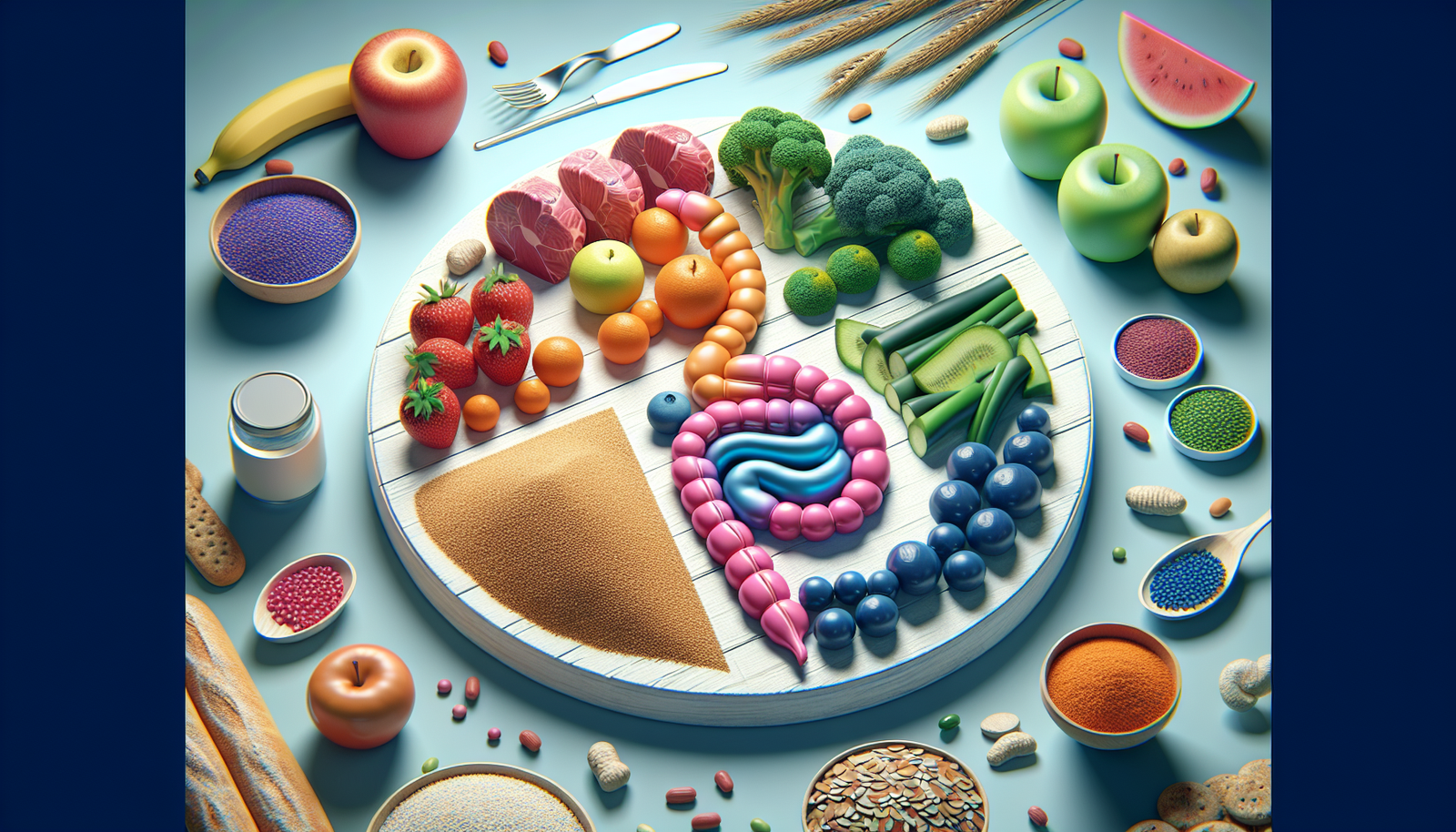Probiotics for Digestive Disorders: What You Need to Know
Probiotics for Digestive Disorders: What You Need to Know
Understanding Probiotics
Probiotics are living microorganisms, primarily bacteria and yeasts, that confer health benefits to the host when consumed in adequate amounts. They play a crucial role in maintaining gut health by balancing the gut microbiota, enhancing digestion, and supporting the immune system. The relationship between probiotics and digestive disorders has garnered considerable attention in recent years due to the rising incidence of conditions such as irritable bowel syndrome (IBS), inflammatory bowel disease (IBD), and antibiotic-associated diarrhea.
Types of Probiotics
The most common probiotic strains belong to two primary genera: Lactobacillus and Bifidobacterium. Other noteworthy probiotics include Saccharomyces boulardii, a beneficial yeast, and various other Lactobacillus and Bifidobacterium strains:
-
Lactobacillus: These bacteria are primarily found in fermented foods like yogurt and fermented vegetables. They are known to produce lactic acid, which lowers pH levels in the gut, creating an inhospitable environment for harmful bacteria.
-
Bifidobacterium: Present in the intestines of infants, these bacteria play a vital role in digestion and help mitigate the effects of dysbiosis (microbial imbalance).
- Saccharomyces boulardii: This probiotic yeast is effective in treating diarrhea and gastrointestinal disorders. It helps restore gut flora and enhances gut barrier function.
The Role of Probiotics in Digestive Disorders
1. Irritable Bowel Syndrome (IBS)
IBS is a functional gastrointestinal disorder characterized by symptoms such as abdominal pain, bloating, and altered bowel habits (diarrhea or constipation). Research indicates that certain probiotic strains may alleviate symptoms of IBS:
- Lactobacillus plantarum: Studies suggest that this strain can reduce bloating and improve overall gut function in IBS patients.
- Bifidobacterium infantis: Clinical trials demonstrate significant symptom relief in individuals with IBS, improving abdominal pain and bloating.
2. Inflammatory Bowel Disease (IBD)
IBD encompasses a group of chronic inflammatory conditions, including Crohn’s disease and ulcerative colitis. While probiotics are not a cure, they can play a supportive role in managing IBD:
- Bifidobacterium longum: This strain may promote remission in ulcerative colitis patients by modulating the immune response and reducing inflammation.
- Lactobacillus rhamnosus GG: Research shows that this strain can help maintain remission in children with IBD and support mucosal healing.
3. Antibiotic-Associated Diarrhea
Antibiotics can disrupt the gut microbiota, leading to diarrhea. Probiotics, particularly Saccharomyces boulardii and Lactobacillus rhamnosus GG, have demonstrated efficacy in preventing and treating antibiotic-associated diarrhea:
- Saccharomyces boulardii: This probiotic has been shown to reduce the risk of antibiotic-associated diarrhea by restoring the balance of gut flora.
- Lactobacillus GG: In clinical trials, this strain effectively reduced the incidence of diarrhea in patients undergoing antibiotic therapy.
Mechanisms of Action
Probiotics exert their effects through various mechanisms:
-
Competitive Exclusion: Probiotics can outcompete pathogenic microorganisms for binding sites on intestinal cells, preventing their colonization.
-
Production of Antimicrobial Substances: Certain probiotics produce substances like bacteriocins and hydrogen peroxide, which inhibit the growth of harmful bacteria.
-
Immune Modulation: Probiotics can enhance the production of antibodies and increase the activity of immune cells, helping to reduce inflammation and manage immune-related digestive disorders.
- Barriers to Intestinal Permeability: Probiotics may strengthen the intestinal barrier function, preventing the translocation of toxins and pathogens and reducing inflammation.
Choosing the Right Probiotics
When selecting probiotics for digestive health, consider the following criteria:
-
Strain Specificity: Different probiotics have unique effects; thus, it is essential to choose a strain that has been proven effective for your specific condition.
-
CFUs (Colony Forming Units): Probiotic effectiveness depends on the number of viable bacteria. Choose products with at least 1 billion CFUs for optimal results.
-
Delivery Method: Probiotics can be found in various forms, including capsules, powders, and fermented foods. Consider your dietary preferences and tolerances.
- Quality: Look for brands that provide third-party testing to ensure potency and purity. Products should have a clear expiration date and be stored correctly to maintain viability.
Food Sources of Probiotics
Incorporating probiotic-rich foods into your diet can be an effective way to enhance gut health naturally:
-
Yogurt: Look for live and active cultures on the label. Yogurt is an excellent source of Lactobacillus and other beneficial bacteria.
-
Kefir: This fermented dairy product is richer in probiotics than yogurt and contains a wider variety of beneficial bacteria and yeasts.
-
Sauerkraut: Fermented cabbage, rich in probiotics, may help promote gut health and improve digestion. Opt for unpasteurized varieties to ensure live cultures.
-
Kimchi: A spicy fermented vegetable dish, kimchi is packed with Lactobacillus strains that aid digestion.
-
Miso: This fermented soybean paste is commonly used in Japanese cuisine and is a good source of probiotics.
- Tempeh: A fermented soybean product, tempeh is rich in probiotics and also provides a high-quality protein source.
Potential Side Effects and Risks
While probiotics are generally considered safe for most individuals, some may experience side effects:
-
Gastrointestinal Symptoms: Initial side effects may include gas, bloating, or mild digestive upset. These symptoms typically resolve as the body adjusts.
-
Infections: In rare cases, individuals with weakened immune systems or underlying health conditions may be at risk of infections due to probiotic use.
- Interactions with Medications: Probiotics can potentially interact with certain medications, notably immunosuppressants or antibiotics. Consult your healthcare provider before starting any probiotic regimen.
Consultation with Healthcare Providers
Before incorporating probiotics into your regimen, especially for managing digestive disorders, it’s essential to consult with a healthcare professional. They can provide personalized recommendations based on your health history and specific digestive issues.
The Future of Probiotics in Digestive Health
Research into probiotics and their impact on digestive health is ongoing. Emerging studies are exploring:
-
Personalized Probiotics: The future may see a rise in personalized probiotic therapies based on individual microbiome profiles, providing tailored gut health solutions.
-
Probiotic-Prebiotic Synergy: Understanding the relationship between probiotics and prebiotics (dietary fibers that feed beneficial bacteria) can enhance health outcomes, leading to more comprehensive dietary recommendations.
-
Pediatric and Geriatric Applications: Continued research into probiotics’ effects on various age groups could expand their usage in pediatric and geriatric populations, addressing specific health challenges.
- Gut-Brain Axis: Investigating the connection between probiotics, gut health, and mental health may unveil new therapeutic avenues for managing stress and anxiety-related digestive issues.
Conclusion
Probiotics are an essential component of maintaining gut health and managing various digestive disorders. By understanding their role, selecting appropriate strains, incorporating probiotic-rich foods into your diet, and consulting with healthcare professionals, you can leverage their therapeutic potential for improved digestive wellness. The fascinating interplay between probiotics and human health continues to unfold, promising exciting developments in the future of digestive health.








